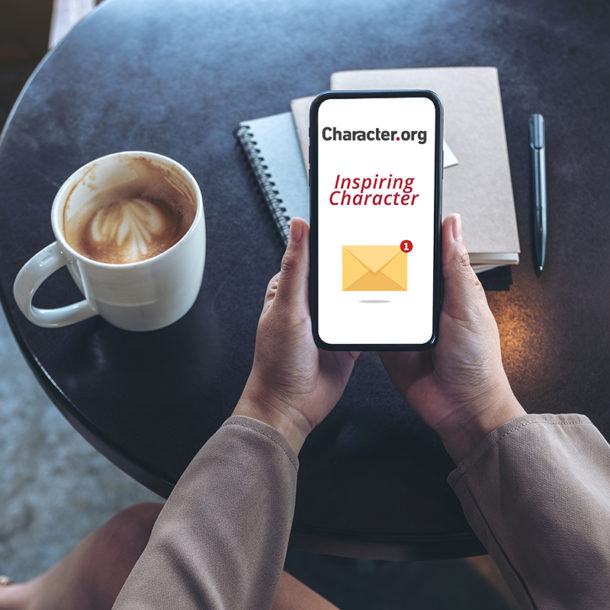By Dr. Arthur Schwartz
According to a recently released report by Gallup and The Walton Family Foundation, almost half of all Gen Zers assert that school lacks a ‘sense of purpose.’
This past week, scores of articles, especially those on education platforms, have used this disturbing finding to ask again why schools remain so laser-focused on academic achievement as the only measure of student success.
If I could wave that magic wand, the Gallup-Walton report would spark our nation to unite and find new and creative ways to help students discover the power of purpose.
More specifically, I’d encourage parents and educators across the United States to come together and discuss the wisdom and insights in the book The Path to Purpose: Helping Our Children Find Their Calling in Life by Bill Damon.
Since writing The Path to Purpose almost 15 years ago, Damon, a professor of education at Stanford University, has mentored and supported a generation of “purpose” researchers. Here is what their research is telling us:
Purpose can be clearly defined. Most researchers define purpose as an energizing, long-term goal that’s meaningful to an individual. Damon suggests that while some purposes can be quite heroic (ending racism, serving in the military), other purposes are quite ordinary (making the volleyball team this year, being the best big sibling you can be). Scholars also agree that purpose is felt during those moments when we’re not thinking, “I have to do this.” Rather, we’re feeling “I want to do this.”
Teens with purpose are healthier and happier. Research shows that purpose is a protective factor against anxiety and depression. Studies also show that young people with purpose have more resilience and grit. Emerging data also suggests that tweens and teens with purpose can more positively navigate the negative impact of social media.
There is a clear connection between purpose and student motivation. Damon laments that most national and state educational priorities ignore the importance of purpose. Yet researchers have shown that purpose is strongly linked to student motivation. He writes: “A purpose creates a desire to learn as soon as the student realizes that certain knowledge and skills are necessary for accomplishing that purpose.” Moreover, those of us who have been teachers know that students are more motivated to learn when schools strive to intentionally connect academic subjects (History, Math) to the purposes of their students.
Damon and other researchers have also identified how families and educators can cultivate a culture of purpose in their homes and schools. I’ve whittled down their ideas to three critical factors:
1. We need to listen carefully to what sparks a young person’s interests.
The reality is that no parent or educator can “give” a young person a sense of purpose. What we can do is to pay attention to what energizes them (and then flame that energy). Parents and educators also need to provide opportunities for young people to establish for themselves short and long-term goals that align with their purpose. There is wisdom to the adage “goals give our lives meaning.”
2. We need to model and foster a culture of purpose.
It’s not enough for us to just listen and support a young person’s purpose. Parents and caregivers also need to talk about their own purpose, whether it’s volunteering at church or coaching little league. Teachers should be encouraged to talk about how their profession gives them meaning and purpose. Our nation also needs to stop eliminating school-based extracurricular activities. We know that students often find their purpose through sports, theatre, band, or coding clubs. Some students, fueled by their newly discovered interest, have even started news clubs that align with their purpose.
3. We need to celebrate purpose.
Families and schools also need to create intentional opportunities for young people to recognize that purpose comes in all sizes and shapes. Every home and school should be a place where children, even at an early age, celebrate compelling narratives of purpose, whether these stories involve the purpose of a classmate, neighbor, team, or volunteer group. These celebrations should be a compelling signal to young people that everyone has the potential to “live their purpose.”
Building a culture of purpose in our homes and schools will not be easy. As Damon has written: “The single greatest barrier to youngsters finding their paths to purpose is the fixation on the short horizons that infuses cultural messages sent to young people today.”
But our collective mission is clear: Every young person should have opportunities to discover for themselves the power of purpose. Helen Keller was right when she wrote: “Many persons have the wrong idea of what constitutes true happiness. It is not attained through self-gratification but through fidelity to a worthy purpose.”
Note: I dedicate this post to Bill Damon and to Kendall Cotton Bronk. Their dedication to igniting the power of purpose in young people inspires me.
Stay Connected To Character
Would you like to receive Arthur’s weekly blog post?







0 Comments